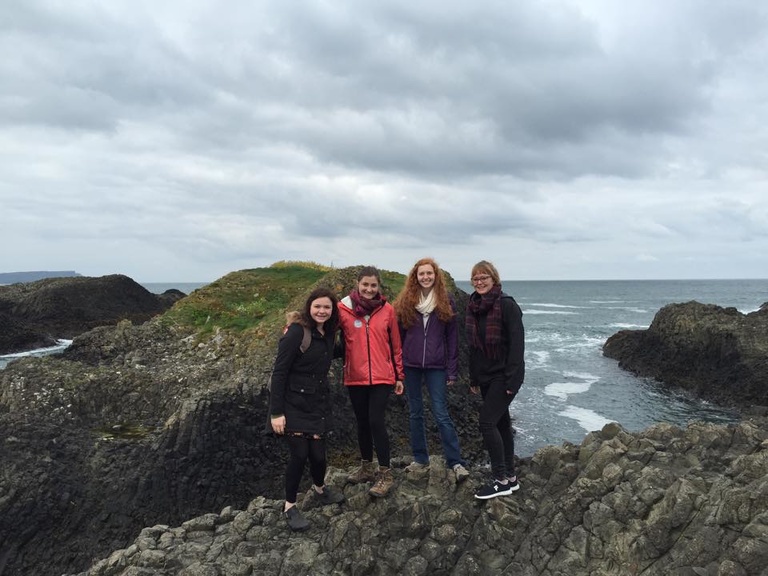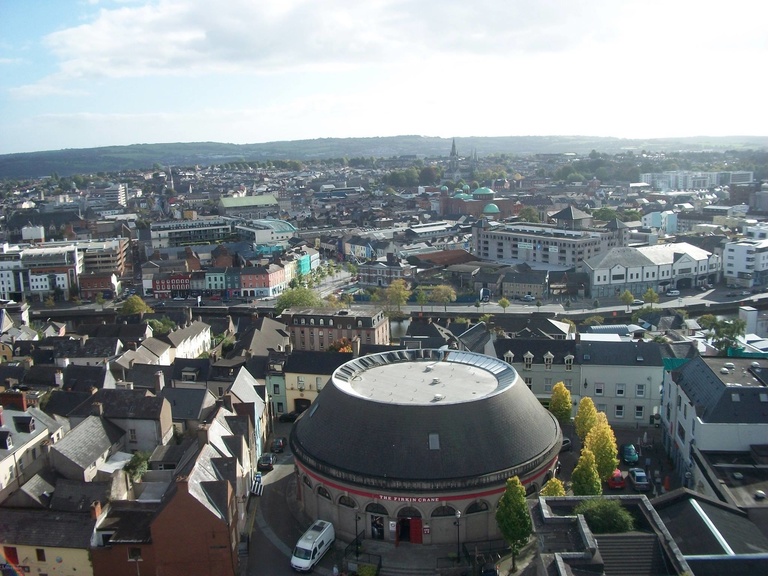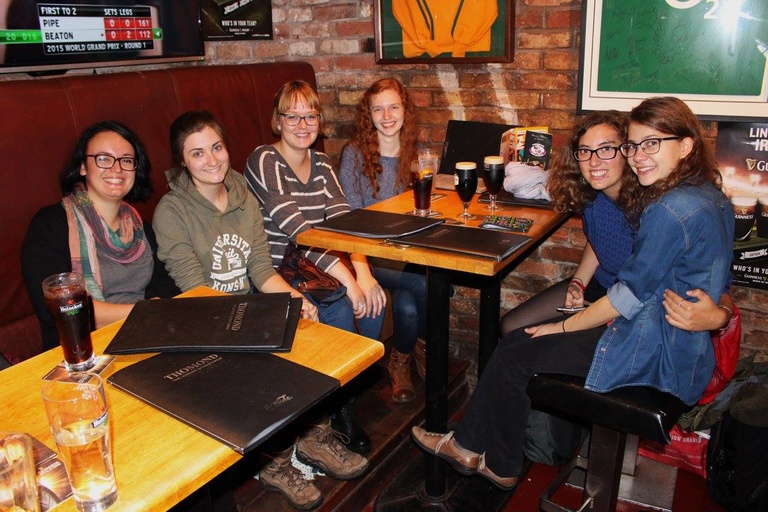*By Kelsey O'Donnell
Moving to another country to study abroad for a year is the definition of getting out of one’s comfort zone. Caitlin and I were both propelled out of our comfort zones as soon as we got on an airplane alone. Luckily, branching out is rewarding as well as challenging. One of my most important goals while studying abroad is to get out of the so-called “American bubble” and challenge myself to meet and talk to students from other parts of the world. This does not mean that traveling with or having American friends while abroad is a bad thing. I am very grateful that I met a fellow Iowa student while here and appreciate that she can relate when I am feeling homesick and want to talk about home. However, the connections I have made with people in Ireland and other international students are equally as important to me and open my mind to new experiences and perspectives. I interviewed Caitlin about her ideas regarding the “American bubble” and her advice for getting out of it.

Caitlin, Kathrin (our German roommate), Kelsey, and Imke (our Dutch friend) at Giant's Causeway
Did you expect to experience difficulty meeting non-American students while studying abroad?
I thought it would be fairly easy to meet students from other countries, and that has proven to be true. I have two European roommates, and I have easily met people from all over the world through clubs and traveling. The effect of meeting people from so many different places has been realizing just how alike people are, despite cultural differences. During one night out, I remember suddenly realizing I was with a group of people, and none of us were from the same country. I, an American, was with a Frenchman, an Irishman, a German, and a British girl, but our varying nationalities had no effect on our ability to find commonalities.
Have you found it difficult to escape the “American bubble”? Why, or why not?
I have not personally had an issue stepping outside my “American bubble,” but I know certain groups of American study abroad students who have had an issue with this. Some students from the U.S. study at UCC with a large group of friends from their home universities, then seldom expand beyond that friend group. While I do find my mind in the United States often, (How is my family doing? Am I missing out on anything at my home campus? How will my life be changed once I return?) I know it is important to focus on what is in front of me right now.

View of Cork City from the top of the Church of St Anne's bell tower.
What strategies have you used to escape the “American bubble”?
As I previously discussed, interacting with students who aren’t from America has pushed me outside of my “American bubble.” Along with this, being conscious of Irish history, politics, and current events has increased my immersion in Irish culture. I took an early-start course in which I learned about Ireland’s history and its ongoing issues, and this definitely made me more aware of my new space. Exploring Cork has helped me shed some “American-ness,” as well. The instance in which I felt most a part of the city was when a native Irish person stopped me on the street asking for directions, and I was able to help her find her way. If it wasn’t for my accent, I may have fooled her into thinking I was a local!
Do you find Cork to be more or less of an “international city” than Iowa City, and why?
I definitely find Cork to be more of an international city than Iowa City. The fact that Cork is in Europe, and therefore in closer proximity to many different countries, is a big reason for this. A more important distinction, though, is a broader perception of the world that exists more definitively outside of the United States. In Ireland, there seems to be a deeper awareness and respect for other cultures. In my experience, America’s vast size, as well as the fact that it is the dominant superpower in the world today, enables many of its citizens to live without acknowledging different cultures and lifestyles. This is more difficult for people from smaller, interconnected countries including Ireland, with its relationship with other countries in the European Union.

Meeting with friends from France, Germany, the Netherlands, and Austria at a traditional Irish pub.
How do behaviors of the international students you encounter differ from American students?
I have met so many people from different countries, all with unique personalities and mannerisms, so it is problematic to collectively group all non-American international students. However, one trait shared by almost all the non-American students I have met is a sort of “reverse intrigue.” For example, most of my friends from the University of Iowa would agree that traveling Europe is an extraordinary adventure, but to my European friends, traveling between countries is similar to Americans’ perception of traveling between states. Instead, the idea of traveling to the United States is a source of excitement. Perhaps I should have expected this, but I still find it hard to imagine a trip to New England seeming more appealing than a trip to Italy.
How do you feel about others’ perceptions of Americans? Do you agree or disagree with these perceptions?
Of course there are cliché stereotypes about Americans, but for the most part people recognize them as just that--stereotypes. I have yet to encounter anyone who has treated me poorly because of my nationality, though I have had to endure jokes about guns and Donald Trump.
To future study abroad students, make the most out of your time abroad. We all go abroad for a reason- to get out there and experience the world, to try new things, and to meet new people. Challenge yourself to step out of your comfort zone and free yourself from the “American bubble.”
*Kelsey O'Donnell is a junior majoring in international studies and anthropology at the University of Iowa. The Sergeant Bluff, Iowa native will be studying abroad for the academic year on the Iowa Regents Semester in Ireland program in Cork, Ireland.